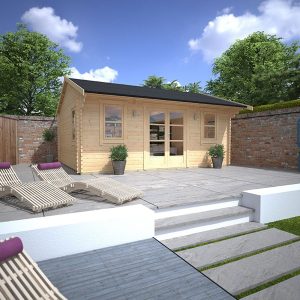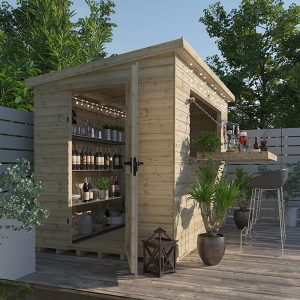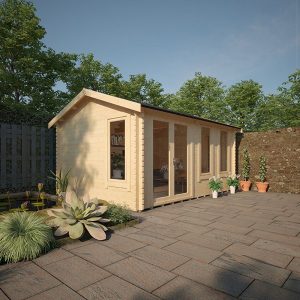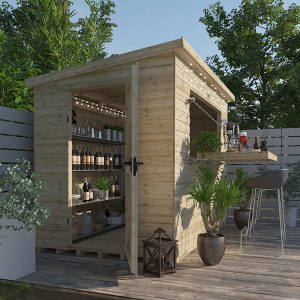Stand out with the Exclusive Event Retreat by Moorvalley, sized at 13′ x 6′ and boasting premium loglap and extra height configuration. Ideal for various gatherings. This retreat distinguishes itself with its heightened ceiling, offering added room. Manufactured in the United Kingdom, this retreat is individually crafted from redwood that has undergone pressure treatment to ensure its resilience against decay. The sturdy 22mm log lap cladding amplifies the durability and aesthetics of the structure, supported by the reliable 22mm half lap floorboards that form a secure foundation. To boost functionality and versatility, this event retreat features a detachable lower panel, enabling easy customization to suit your needs. The elevated hatch, which can be raised with hinged supports, facilitates the showcasing of products and ensures swift customer assistance. The crimson corrugated Onduline roof sheets not only provide a timeless and appealing look but also protect the retreat from severe weather elements.















































